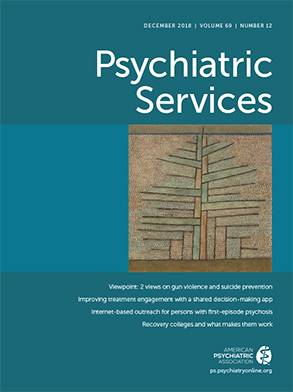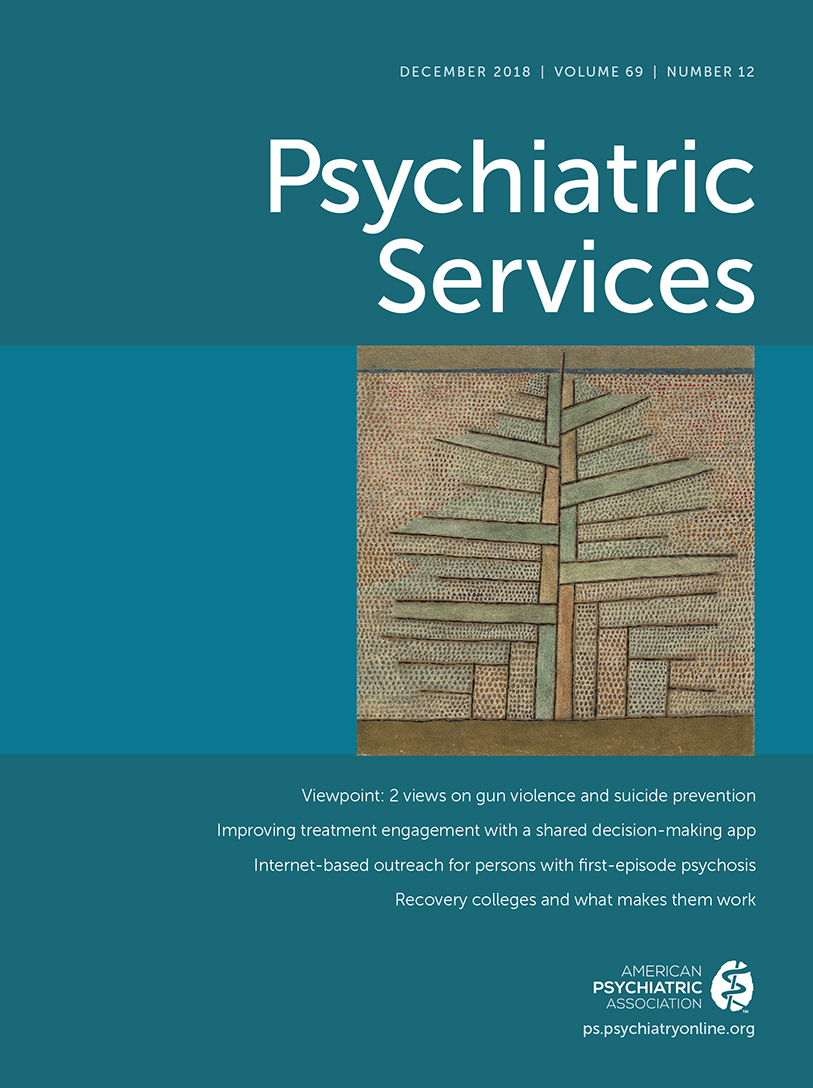The stigma of mental illness is a significant obstacle to establishing a satisfying life in the community. We created antistigma workshops at the Recovery Center, a modified outpatient clubhouse on the campus of Rockland Psychiatric Center (RPC) that serves members of the Deaf Community. This report is collectively written by a center member, a peer advocate, and a psychiatry resident on rotation at the center.
Members, peers, and staff work together to lead groups and activities focused on employment, community integration, wellness, peer support, and the arts. The center’s 150 members come from RPC-affiliated outpatient clinics, inpatient units, and the surrounding community. Located near Deaf Community housing for people with mental illness, our center is the only clubhouse in New York State that integrates a significant deaf membership into all activities. American Sign Language (ASL) interpreters are present during activities and throughout the center. Deaf members participate fully alongside hearing members, including in leading workshops and helping to run the center. Many hearing members have learned ASL over the years.
Antistigma workshops were developed for the center (XC), an iterative process involving feedback from members and peers. The resident (XC) conducted field observations and spoke to individuals about their experiences with stigma, consistent with a participant observation method used in anthropological research. She integrated these findings with existing antistigma interventions, most notably Corrigan’s Honest, Open, Proud and Coming Out Proud workshops. The final workshops differed significantly from existing interventions in their utilization of member-created components. For example, members themselves suggested integration of intersectionality, a concept more recently appearing in the stigma literature. The final workshop series is three one-hour sessions involving loosely moderated discussions with both staff- and member-led components, member-created skits on stigmatizing situations, and member-led debriefs. These workshops occurred in June 2017 and January 2018, with 30–40 members attending each session. After each workshop, members continued conversations on stigma during free time and scheduled activities.
These workshops and discussions revealed that the stigma of mental illness was seen as intimately related to other aspects of identity. Race, sexuality, hearing ability, and socioeconomic status have also influenced members’ experience of living with mental illness. Discussions focused on discriminatory attitudes among the general public, such as assumptions that people who cannot hear are not intelligent and not worth trying to have a conversation with. If the hearing person finds out that a deaf person also has a psychiatric condition, the hearing person seems even less likely to engage with that individual. This intersectionality means that focusing on mental illness stigma alone does not fully capture how stigma is felt by our members.
Workshop participants also noted that societal systems contribute to stigma. For example, members talked about the difficulty of finding a job. Residences for people with mental illness and housing for deaf people are often located in areas with low resources and limited options for public transportation, making commuting difficult. Participants felt that historical processes influenced by stigma have led to fewer housing and treatment facilities being located in resource-rich areas and that stigma and structural discrimination are interrelated.
The stigma of mental illness was also seen as coming from service providers and psychiatrists. Although well-intentioned, service providers often overemphasize reducing symptoms. Participants noted that expressions of anguish are often objectified according to the DSM, with disregard to the complexity and nuance of human emotion. Although members’ distress is intimately related to mental health, their life stories also inform how they express suffering. Furthermore, that experience can be filled with meaning. The analogy resulting from these workshops is that there is a fire within everyone; each person can choose to stamp it out quickly or work with it as a source of light.
Future directions for the antistigma workshops will involve members leading discussions and skits. For psychiatry residents and medical students rotating through the center, the workshops will be an educational opportunity to learn from members’ experiences of stigma. Trainees will have the option to colead workshops under the guidance of members. The stigma workshops are a cocreated and emergent process necessitating psychiatry residents’ own self-reflection on their experiences with stigma. Our project empowers members to voice their lived experiences with psychiatric diagnoses while engaging psychiatric trainees as cofacilitators in a collective creative process with members.

